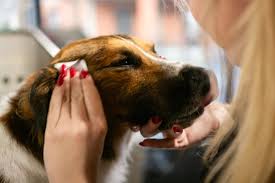Sometimes you glance down at your dog or cat and think: “Ugh, what now?” A paw that won’t stop licking, a belly that rumbles like a washing machine, or a coat that looks like it’s been through a hurricane. Naturally, you want to fix it fast — and home remedies feel like the obvious answer.
After all, coconut oil, pumpkin, oatmeal baths… these things are everywhere online. They’re cheap, familiar, safe-ish. Right?
Well… sometimes yes. Sometimes, no. The truth is a little messier than most blogs will admit.
Why Home Remedies Are So Tempting
Humans like control. And pets? They can’t tell you, “Hey, this hurts.” So you do. You reach for the pumpkin, the oil, the chamomile tea. It feels good — you’re helping, doing something, anything. And that counts for something.
The danger comes in thinking that “natural” automatically equals safe. What’s fine for a dog may be dangerous for a cat. And what works for your Labrador may send your pug into the vet’s office.
Remedies That Are Generally Safe
Here’s a list that most vets would nod at — as long as you’re careful.
Coconut Oil
- Why it works: Moisturizes dry skin, can improve coat shine, may help minor irritations.
- How to use: Rub a thin layer on dry spots, or mix a tiny spoonful into food.
- Watch out for: Too much can cause diarrhea. Start small.
Side story: My dog once got winter paws so dry they cracked. A light layer of coconut oil overnight and he was back to normal in two days. Too much, though, and we had a small… bathroom disaster.
Pumpkin
- Why it works: Fiber helps with constipation and diarrhea.
- How to use: A teaspoon per 10 pounds of body weight, plain canned pumpkin.
- Warning: Avoid pumpkin pie filling. Spices and sugar = trouble.
Tip: Even a tiny scoop of pumpkin can make a noticeable difference in digestion, especially when switching foods.
Oatmeal Baths
- Why it works: Soothes itchy, irritated skin.
- How to use: Grind plain oatmeal into powder, mix with lukewarm water, soak your pet.
- Watch out: No essential oils unless cleared by your vet — cats in particular can react badly.
Chamomile or Green Tea (Cooled)
- Why it works: Minor calming effects for anxiety or mild skin irritations.
- How to use: As a gentle rinse or tiny drink (dogs).
- Warning: Always fully cooled; no caffeine.
Remedies to Approach With Caution
- Apple cider vinegar: Can soothe skin if diluted, but too strong = burns.
- Herbal supplements: Chamomile, calendula, or turmeric — dosage matters. Too much can upset digestion or stress the liver.
- Essential oils: Some are toxic even in tiny amounts, especially to cats.
Flat-Out Dangerous Home Remedies
This is non-negotiable:
- Chocolate, caffeine, coffee
- Garlic, onions, chives
- Xylitol (sugar substitute)
- Ibuprofen, acetaminophen, other human medications
Story: A friend gave her dog a small dose of acetaminophen thinking it was safe. Emergency vet visit followed. Three days in hospital. Do not do this.
Signs Your Remedy Isn’t Working
- Sudden vomiting or diarrhea
- Lethargy
- Swelling, redness, or worsening skin issues
- Breathing difficulty or seizures
If any appear, stop immediately and call the vet. Don’t “wait and see.”
When to Call a Vet Immediately
- Persistent vomiting or diarrhea
- Severe lethargy or collapse
- Breathing difficulties
- Suspected poisoning
- Major injuries
Sometimes remedies help, sometimes they mask bigger problems. A vet check keeps your pet safe.
How to Integrate Home Remedies Safely
- Start small, one change at a time
- Keep a log of what you tried and reactions
- Vet guidance is essential for chronic or recurring issues
- Use plain, pet-safe ingredients only
Reality check: Sometimes the biggest effect is the attention, not the remedy. Pets respond to your touch, presence, and consistency. Applying coconut oil isn’t just moisturizing — it’s bonding.
Bottom Line
Home remedies can be useful, but they’re not a replacement for vet care. They’re supplemental. The line between safe and harmful is thinner than you think. A little pumpkin, a dab of coconut oil, or an oatmeal soak — these can help. But guessing, overdoing it, or using human medications? Dangerous.
Pets are resilient, but they rely on us entirely. Awareness, observation, and consulting professionals when needed is the best formula for keeping them happy and healthy.
FAQs
- Are all natural remedies safe? No. Some are toxic. Vet approval is key.
- Can human medications be given? Never without vet approval.
- How can I tell if a remedy is working? Observe symptoms, note changes, and watch for new issues.
- What if a remedy makes things worse? Stop and call your vet immediately.
- Can home remedies replace vet care? No. They supplement, never replace.



